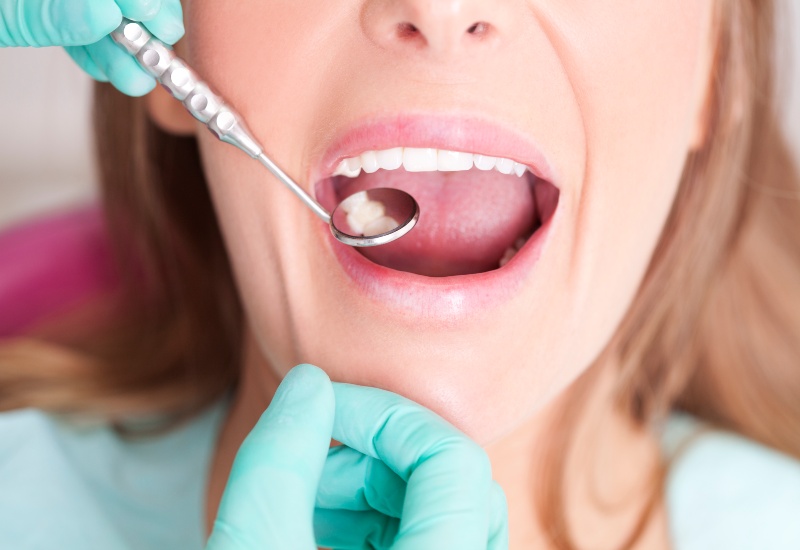How to Protect Your Teeth From Decay Every Day
A healthy smile starts with daily habits, and Dental Care of Westlake loves to share tips on ways to prevent tooth decay every day at home with patients of all ages in the Westlake, OH area. With education, personalized care, and regular checkups, you’ll have all the tools you need to keep your teeth in the best shape possible. Tooth decay is one of the most common dental issues for all ages, and no one is immune to it. The good news is, it’s also one of the most preventable. Wondering how to protect your teeth every day from decay? You’re in the right place.
What Is Tooth Decay and Why Is Daily Prevention Crucial?
Tooth decay, commonly known as cavities, occurs when bacteria produce acids that damage the tooth enamel, the hard outer layer of teeth. These acids form when sugars and starches from food interact with plaque, a sticky film that builds up on teeth.

If left untreated, tooth decay can lead to pain, infection, and even tooth loss. That’s why daily prevention is so important. By taking small steps each day, you can protect your teeth and avoid more serious dental problems caused by cavities.
What Causes Tooth Decay?
Tooth decay causes can be one or a combination of factors, including:
- Poor Oral Hygiene – Not brushing and flossing regularly allows plaque to build up.
- Sugary and Acidic Foods – These feed the bacteria that produce harmful acids.
- Dry Mouth – Saliva helps wash away food particles and neutralize acids.
- Skipping Dental Visits – Without professional cleanings, plaque and tartar can accumulate.
- Genetics – Some people may be more prone to decay due to the shape of their teeth or enamel strength.
Understanding these causes can help you make smarter choices to protect oral health.
Daily Habits for Tooth Decay Prevention
Here are some simple but powerful tips to avoid cavities:
- Brush Twice a Day
Use a soft-bristled toothbrush and fluoride toothpaste to gently brush your teeth for two minutes, morning and night. Make sure to reach all surfaces of your teeth, including the back molars.
- Floss Daily
Flossing removes plaque and food particles from between your teeth where your toothbrush can’t reach. It’s essential for preventing decay between teeth.
- Rinse With Mouthwash
An antimicrobial or fluoride mouthwash can help reduce bacteria and strengthen enamel. Ask your dentist which type is best for you.
- Stay Hydrated
Drinking water throughout the day helps rinse away food particles and keeps your mouth moist, which supports healthy saliva production.
Diet Tips for Healthy Teeth
Healthy teeth care includes paying attention to what you eat. Here are some tips to keep your teeth strong:
- Limit sugary snacks and drinks like soda, candy, and even fruit juices, which contribute to decay
- Choose tooth-friendly foods such as crunchy fruits and vegetables like apples and carrots to help clean teeth naturally
- Include calcium-rich foods that support strong enamel, like dairy products, leafy greens, and almonds
- Avoid frequent snacking because constant eating gives bacteria more fuel to produce acids
The Role of Fluoride in Preventing Decay
Fluoride is a mineral that helps strengthen tooth enamel and make it more resistant to acid attacks. It’s found in most toothpaste and many public water supplies. Our team might recommend fluoride treatments during your visit, especially if you’re at higher risk for cavities.
Regular Dental Checkups
Even with great at-home care, regular dental visits are essential and recommended twice a year by the American Dental Association (ADA). Professional cleanings remove plaque and tartar that brushing can’t, and exams help us catch and treat early signs of decay before they become serious. However, if you have specific concerns about your teeth or cavities, don’t wait for your bi-annual visit to talk to us about them.
Protecting Teeth While You Sleep
Nighttime is a vulnerable time for your teeth, especially if you grind them or have dry mouth. Here’s how to protect your smile while you sleep:
- Brush Before Bed – Never go to sleep without brushing your teeth.
- Use a Nightguard – If you grind your teeth, a custom nightguard can prevent wear and tear on teeth and enamel.
- Stay Hydrated – Keep water by your bedside to combat dry mouth.
- Avoid Late-Night Snacking – Food residue can linger on your teeth overnight.
Common Myths About Tooth Decay
You’re better equipped to prevent tooth decay when you know the facts:
Myth: Only kids get cavities.
Truth: Adults are just as susceptible, especially if they have gum recession or dry mouth.
Myth: If my teeth don’t hurt, they’re fine.
Truth: Decay can develop silently. Regular checkups are key to catching problems early.
Myth: Sugar is the only cause of cavities.
Truth: Starches and acidic foods also contribute to decay.
Ready to Protect Your Smile?
We hope these oral hygiene tips from Dental Care of Westlake in Westlake, OH have given you the confidence to protect your teeth from decay at home. If you’re new to the area or haven’t seen a dentist in a while, we’ll work with you to create a personalized prevention plan against tooth decay. Contact us to schedule an appointment today.
FAQs About Tooth Decay
Can Tooth Decay Be Reversed?
In its earliest stages, decay can sometimes be reversed with fluoride treatments and improved oral hygiene. Once a cavity forms, it needs to be treated by a dentist.
How Do I Know if I Have a Cavity?
Symptoms may include sensitivity, pain when chewing, or visible holes. However, some cavities cause no symptoms—regular exams are the best way to catch them early.
Is It Possible to Never Get a Cavity?
Yes! With consistent oral hygiene, a healthy diet, and regular dental visits, many people go their whole lives without developing cavities.
